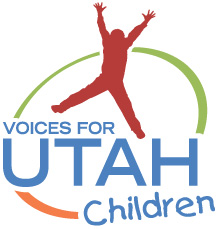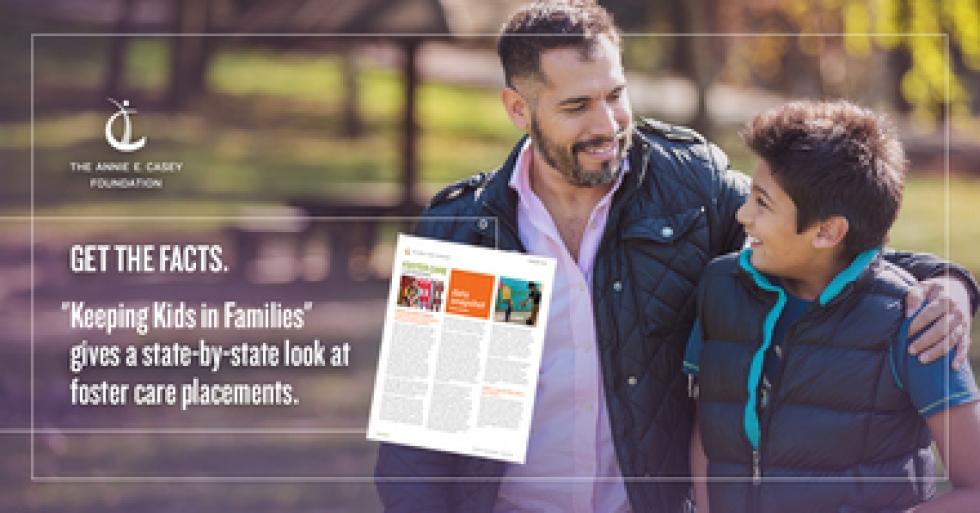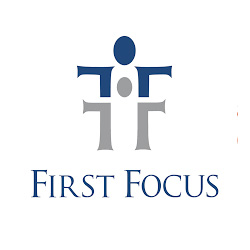
UNDER EMBARGO until Tuesday, April 2 at 12:01 a.m. ET
Contact: Terry Haven, , 801-364-1182
Utah Making Strides in Keeping Children in Foster Care Connected to Families
New 10-year Data Snapshot with State-by-State Data from the Annie E. Casey Foundation
Shows 88% of Foster Children are Placed in Families in Utah
Salt Lake City, UT—Utah had 2,954 children in foster care in 2017 according to the“Keeping Kids in Families: Trends in U.S. Foster Care Placement,” a new data snapshotreleased today by the Annie E. Casey Foundationas part of its KIDS COUNT® project.Using datafrom the child welfare system across all 50 states and the District of Columbia over a 10-year period to look at how placements for young people in foster care have changed, the report finds 88% of Utah foster children were place in family settings rather than group homes or institutions in 2017 compared to 79% in 2007. Nationwide care systems placed 86 percent of these children in families in 2017, compared with 81 percent in 2007. However, nationwide and here in Utah there are persistent racial disparities for children of all ages in foster care.
While the overall trend is good, the numbers are not as good for older kids and children of color. The good news is that improvement was made for older kids and African American children. The bad news is they lag behind their peers in terms of placement. In 2017, only 1% of children 12 year and under are placed in group homes or institutions compared to 24% of children over age 12. Similarly, placement rates in group homes or institutions for African American children are at 14% compared to 9% for Non-Hispanic White children.
“ Overall, the news is good for children in the care of the child welfare system in Utah,” said Terry Haven, Interim CEO of Voices for Utah Children. “While across the nation there has been little progress for teens, with the national rate remaining flat overall, Utah saw progress in placing teens in a family setting.”
The “Keeping Kids in Families”snapshot shows that across all age and race categories, Utah saw improvement in placing children in family settings. In 2007, 31% of children over the age of 12 were placed in group homes or institutions compared to 24% in 2017.
Being part of a family is a basic human need and essential to well-being, especially for children, teenagers and young adults who are rapidly developing and transitioning to independence, as documented in the Casey Foundation’s 2015 report, Every Kid Needs a Family.The new data suggest a growing consensus among practitioners and policymakers that young people in the child welfare system should live in families.Throughthe Family First Prevention Services Act, signed into law in 2018, states are empowered to prioritize family placement and high-quality, family-centered settings which produce the best outcomes for young people.
Key national findings from “Keeping Kids in Families”include:
-
For teenagers, progress in family placements has been elusive. Nationwide, more than a third of young people in child welfare systems who are 13 and older lived in group placements in 2017 ― the same proportion as 10 years ago.
-
A breakdown by race shows that progress is highly uneven. Systems increased the placement rate of white youth in family homes from 81 percent to 87 percent, but outcomes for Latino and African-American children improved by just 3 percent, and by just 1 percentage point for Asian-American children.
Voices for Utah Children joins the Casey Foundation in calling on child welfare systems to use the opportunities afforded by Family First to increase available services to stabilize families. Similarly, states can:
-
Prioritize recruitment of kin and foster families for older youth and youth of color in recruitment planning;
-
Engage families in decision making, since kin and foster parents should be treated as important members of a child’s team;
-
Require director approval for non-kin placements.
Anna Thomas, Policy Analyst for Voices for Utah Children says, “We are pleased to see that Utah policymakers and public administrators seem to be taking seriously the implementation of the Family First Act in our state. While we believe that we all have the best interests of children and their families in mind as we work together to build a better foster care system, Voices for Utah Children will be following Utah’s implementation of the Family First Act - including such legislation as SB128, Child Welfare Amendments, passed during this recent session - very closely, and with one question in mind: ‘Is it good for kids?’”
About Voices for Utah Children
At Voices for Utah Children, we believe that every child deserves the opportunity to reach his or her full potential. And to achieve this vision, we make sure all kids are ready to learn and they and their families are healthy and economically secure. For more information, visit utahchildren.org
About the Annie E. Casey Foundation
The Annie E. Casey Foundation creates a brighter future for the nation’s children by developing solutions to strengthen families, build paths to economic opportunity and transform struggling communities into safer and healthier places to live, work and grow. For more information, visit www.aecf.org. KIDS COUNT®is a registered trademark of the Annie E. Casey Foundation.
###






